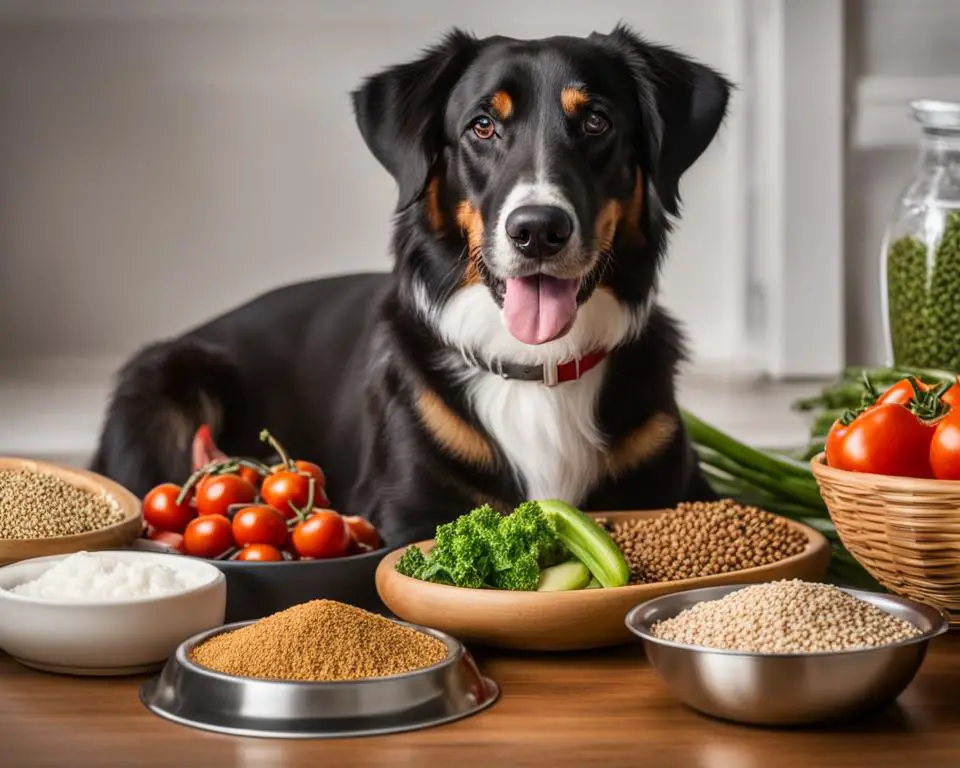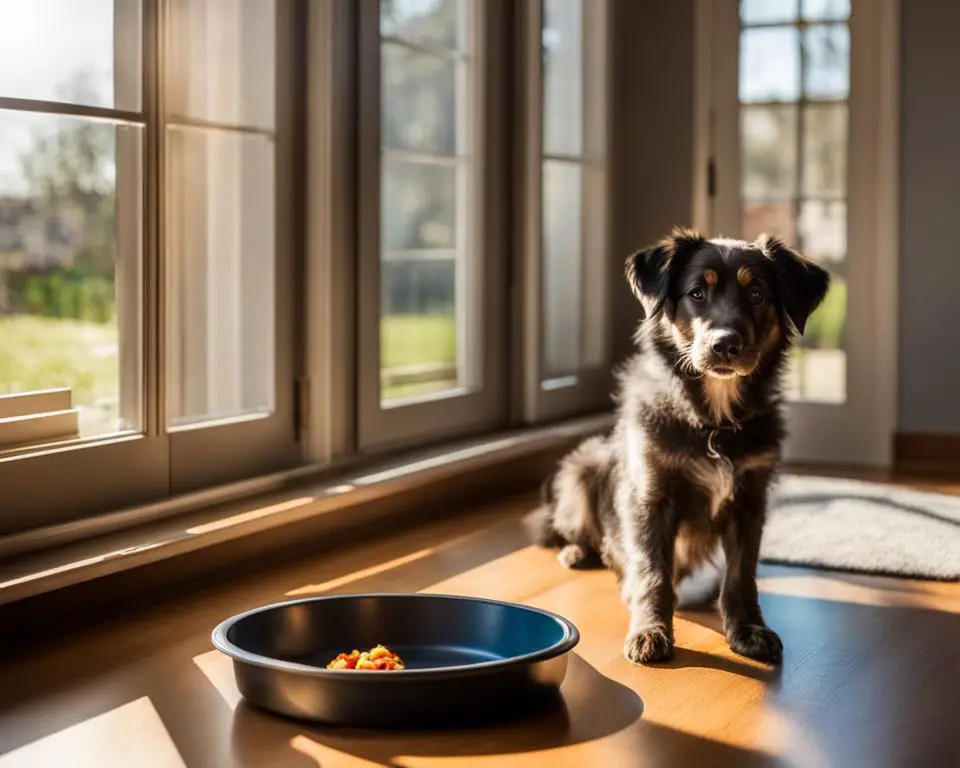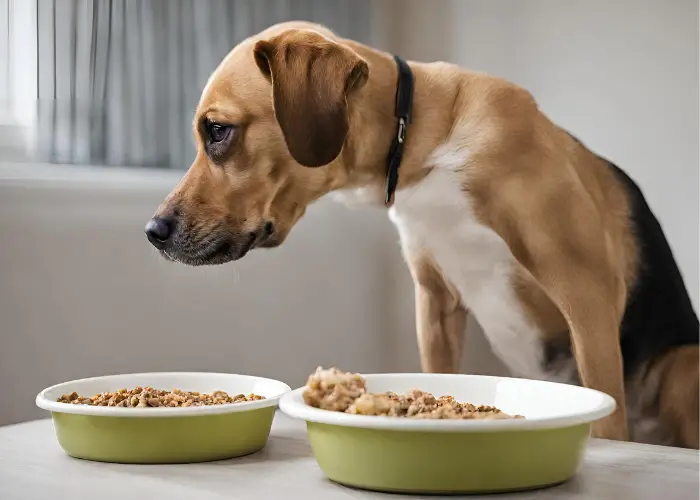Feeding your dog is essential to their daily care, and many dog owners wonder about the best feeding schedule.
One common practice is to feed dogs once daily, but what are the pros and cons of this feeding routine?
In this article, we will explore the benefits and drawbacks of once-a-day dog feeding to help you make an informed decision for your furry friend.
Key Takeaways:
- According to a study by the University of Washington via the Dog Aging Project, feeding your dog once daily may help reduce the risk of age-related conditions.
- Careful monitoring of your dog’s weight and overall health is essential when feeding them once a day to prevent the risk of obesity.
- Consult your veterinarian to determine if a once-a-day feeding schedule is appropriate for your dog’s needs and health conditions.
- Ensure your dog receives a balanced diet and all necessary nutrients when feeding them daily.
- Alternative feeding schedules, such as smaller meals multiple times a day or automated feeders, may be suitable options for some dogs.
Benefits of Once-a-Day Dog Feeding

Exploring efficient and healthy feeding schedules is crucial for dog owners. One such schedule that’s gaining attention for its potential benefits is feeding your dog once a day. This method, while unconventional, might offer significant health advantages for your pet.
Health Benefits Backed by Research
Lower Rates of Age-Related Conditions
According to research, such as the Dog Aging Project findings, dogs fed once daily tend to have lower rates of age-related conditions.
These include decreasing the prevalence of cancers and cognitive decline, suggesting that a once-a-day feeding schedule may contribute positively to your dog’s longevity and overall health.
Supporting the Immune System and Digestion
Consistently feeding your dog one well-balanced meal daily can play a vital role in their health.
It helps support their immune system, promotes healthy digestion, and reduces the risk of chronic diseases. This approach to feeding can be a key factor in maintaining your dog’s health over the long term.
Convenience for Dog Owners
Simplifying Mealtime
Feeding your dog once a day can also simplify your daily routine. Preparing and serving just one meal daily saves time and effort, making it a particularly appealing option for busy individuals or families.
This approach to feeding can make managing your dog’s diet more manageable amidst hectic schedules.
Importance of Appropriate Portion Size
Tailoring Meals to Your Dog’s Needs
Ensuring your dog receives the right portion size in their once-a-day meal is critical.
The appropriate amount of food should be based on various factors, including age, size, breed, and activity level.
Consulting with a veterinarian is essential to determine the optimal amount of food for your dog, ensuring they receive the nutrition they need.
Choosing a once-a-day feeding schedule for your dog offers potential health benefits and practical advantages.
However, it’s important to consider your dog’s individual dietary needs and lifestyle.
Consulting with a veterinarian will help ensure this feeding schedule suits your pet.
It also allows you to provide the best care while enjoying this method’s simplicity and potential health improvements.
Drawbacks of Once-a-Day Dog Feeding

While once-a-day feeding can offer benefits, it’s crucial to acknowledge its potential disadvantages. This feeding schedule might not suit all dogs and could lead to several issues that need careful consideration.
Health Concerns
Increased Risk of Obesity
Feeding your dog once a day can inadvertently increase their risk of obesity. A large meal in one sitting may encourage overeating, leading to weight gain.
Monitoring your dog’s weight and body condition is essential to prevent obesity and its associated health risks.
Discomfort and Hunger
Dogs on a once-a-day feeding schedule may experience discomfort or hunger due to the long fasting period.
This can result in restlessness, anxiety, or a lack of energy, especially in dogs accustomed to frequent meals. Assessing your dog’s tolerance to this feeding pattern is key to their well-being.
Nutritional Balance
Imbalance in Nutrient Intake
Ensuring a balanced nutrient intake in a single meal can be challenging. It’s vital to choose a dog food that meets all nutritional requirements for the day. This helps in maintaining a healthy diet and preventing nutritional deficiencies.
Behavioral Considerations
Increased Hunger Between Meals
A once-a-day feeding schedule might increase hunger between meals for some dogs.
This can cause discomfort and lead to unwanted behaviors like begging or scavenging. Providing mental stimulation and activities can help manage their hunger and maintain engagement.
Deciding on a once-a-day feeding schedule requires careful evaluation of your dog’s health, behavior, and preferences.
Regular veterinary check-ups are crucial to monitor their health and adapt their feeding plan.
By understanding and addressing these drawbacks, you can decide whether once-a-day feeding is suitable for your dog.
Considerations for Once-a-Day Dog Feeding

Before deciding to feed your dog once a day, there are a few considerations to keep in mind.
Consult with Your Veterinarian
First and foremost, it is essential to consult with your veterinarian to determine if a once-a-day feeding schedule is appropriate for your dog’s specific needs and health conditions.
They can provide valuable guidance on portion sizes, the best type of food to feed your dog, and any dietary restrictions or modifications that may be necessary.
Your veterinarian is the best resource to help you make an informed decision and ensure your dog’s nutritional needs are met.
Ensure a Balanced Diet
Feeding your dog once a day means receiving all their daily nutritional requirements in a single meal.
Ensuring that your chosen food provides a balanced diet with all the necessary nutrients is crucial.
When selecting a dog food, look for options labeled as complete and balanced, indicating that they contain all the essential nutrients your dog needs to thrive.
Additionally, suppose your dog has specific dietary requirements or restrictions. In that case, you may need to work with your veterinarian to create a customized feeding plan or consider supplementing their diet with additional nutrients.
Monitor Weight and Overall Health
Regular monitoring of your dog’s weight, energy levels, and overall health is essential when feeding them once a day.
Dogs have different metabolic rates and activity levels, so it’s important to ensure that the once-a-day feeding schedule is providing them with adequate nutrition without causing weight gain or loss.
Be mindful of any changes in your dog’s appetite, behavior, or physical condition, as these may indicate that the once-a-day feeding schedule is unsuitable.
By closely monitoring your dog’s well-being, you can make any necessary adjustments to their feeding plan to ensure they remain happy and healthy.

| Nutrient | Importance | Sources |
|---|---|---|
| Protein | Essential for growth, repair, and maintenance of tissues and organs. | Meat, fish, eggs, legumes |
| Carbohydrates | Provide energy and support digestion. | Whole grains, vegetables, fruits |
| Fat | Needed for healthy skin and coat and absorption of fat-soluble vitamins. | Fish oil, poultry fat, plant oils |
| Vitamins and Minerals | Essential for various bodily functions and overall health. | Fruits, vegetables, supplements |
| Water | Aids in digestion, nutrient absorption, and temperature regulation. | Clean, fresh water |
By considering these factors and working closely with your veterinarian, you can make an informed decision about feeding your dog once a day.
Remember that every dog is unique; what works for one dog may not suit another. The health and well-being of your furry companion should always be the top priority.
Alternative Feeding Schedules

While feeding your dog once a day is common, it is not the only option. There are alternative feeding schedules that you can consider based on your dog’s needs and preferences.
1. Multiple Small Meals: Some dog owners prefer to feed their dogs smaller meals multiple times daily. This can help prevent overeating and may be better suited for dogs with specific health conditions, such as diabetes or gastrointestinal issues.
“Feeding my dog smaller meals throughout the day has made a noticeable difference in his digestion. He no longer experiences bloating and discomfort after eating, and his overall energy levels have improved.” – Sarah, dog owner
2. Automated Feeders: Another option is to use an automated feeder that dispenses small portions of food throughout the day, mimicking the natural foraging behavior of dogs. This can help prevent boredom and overeating.
“I recently switched to an automated feeder for my dog, and it has been a game-changer. He gets regular, portion-controlled meals without me having to worry about being home on time to feed him.” – Mark, dog owner
Ultimately, the best feeding schedule for your dog will depend on their needs and lifestyle.
When deciding on an alternative feeding schedule, it is important to consider factors such as your dog’s health conditions, activity level, and dietary requirements.
Conclusion

Feeding your dog once a day can offer both benefits and drawbacks. While studies have shown associations between once-a-day feeding and lower rates of age-related conditions, further research is needed to establish causation and fully understand the effects of this feeding schedule on a dog’s health.
It is crucial to consult your veterinarian and carefully monitor your dog’s weight and overall health when considering a once-a-day feeding schedule.
Your vet can provide valuable guidance on portion sizes and the best type of food to feed your dog. By working together, you can ensure your dog receives a balanced diet and is not at risk of obesity or other health issues.
Ultimately, the decision on how to feed your dog should be based on their individual needs and requirements, in consultation with a professional.
Every dog is unique, and what works for one dog may not work for another. By considering your dog’s specific circumstances and seeking expert advice, you can establish a feeding schedule that promotes their overall well-being and quality of life.

